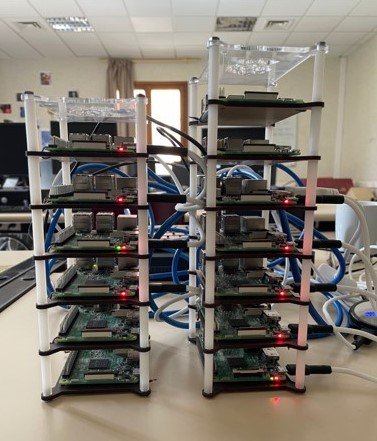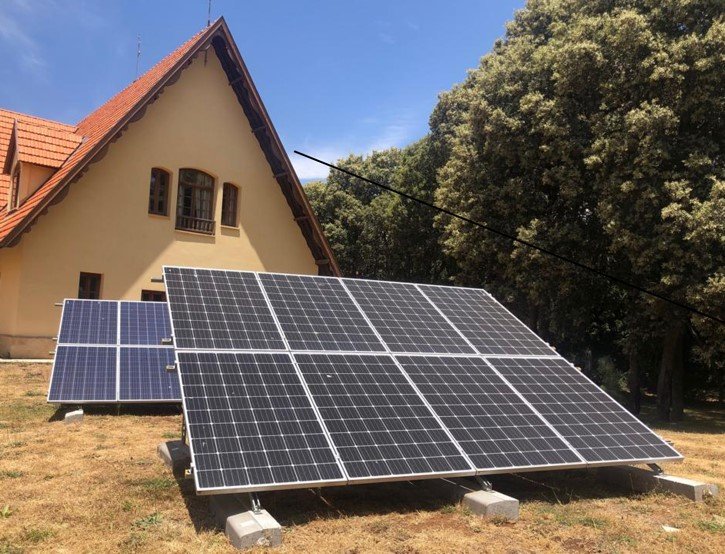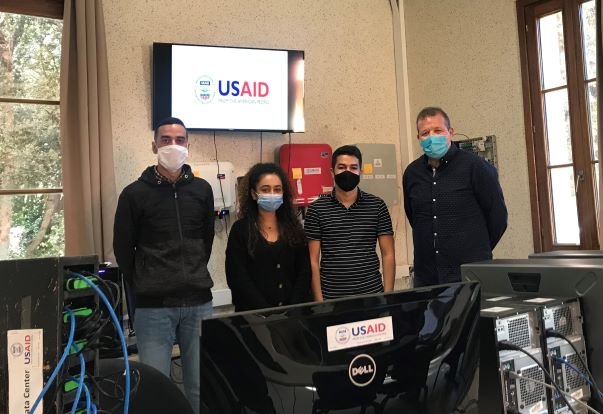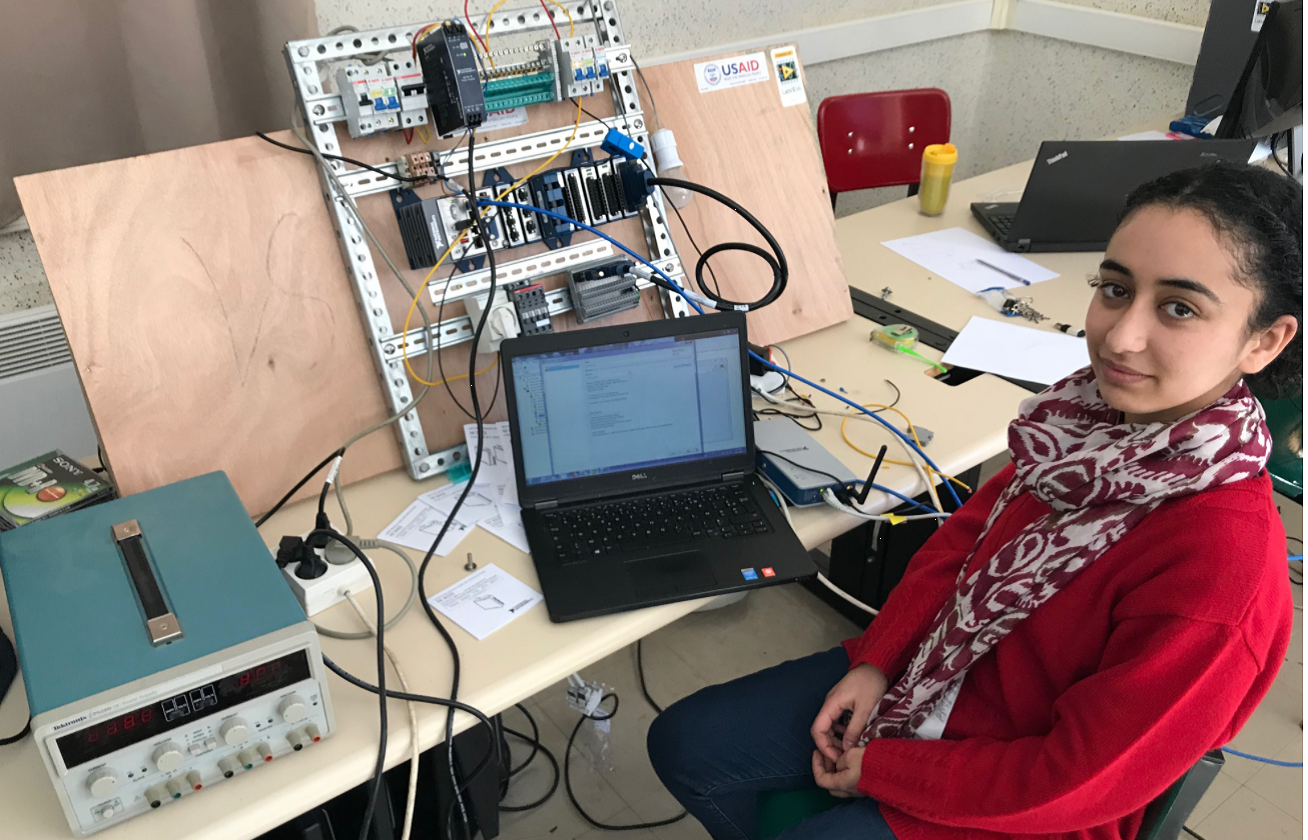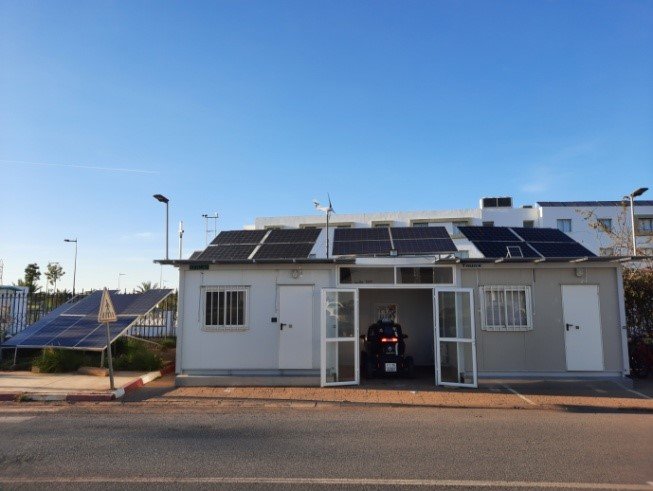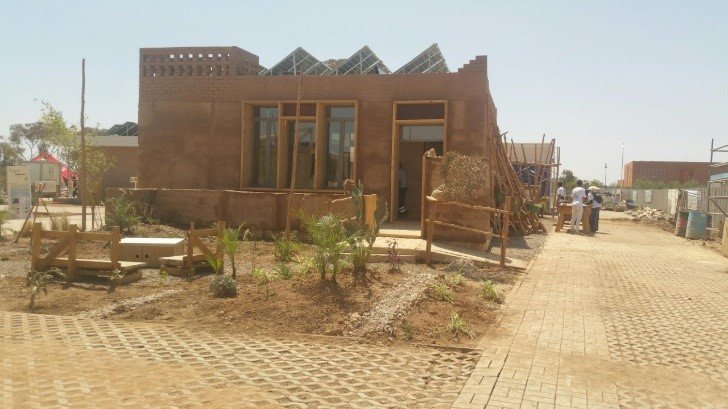|
Cycle 5 (2015 Deadline)
Towards Smart Microgrids: Renewable Energy Integration into Smart Buildings
PI: Mohamed Riduan Abid (R.Abid@aui.ma), Alakhawayn University
Co-PI Mohamed Bakhouya (mohamed.bakhouya@uir.ac.ma), International University of Rabat and Khalid Zinedine (IUR), University Chouaib Doukkali
U.S. Partner: Driss Benhaddou, University of Houston
Project Dates: December 2016 - November 2021
Project Overview
Besides being a global concern, energy efficiency is growing as a potential market with very promising development and environmental impacts. Smart Grids (SGs) promote energy efficiency in electrical grids, mainly via the integration of renewable energy (thus minimizing greenhouse gas emissions) and via the leveraging of Information and Communication Technology (ICT). ICT is a key element in the optimization of the Demand/Response (DR) variance, which stipulates a real-time dissemination of data between SG components, namely, smart meters at the production site (i.e., renewable energy sources), sensors measuring electricity consumption at the consumer site, and actuators. The interconnection of these components needs a reliable network: the Advanced Metering Infrastructure (AMI).
This project leveraged energy efficiency in smart buildings by promoting “context awareness” whereby the switching on and off of electrical appliances is based on the context, i.e., temperature, number of people in rooms, humidity, light, and so forth. To this end, these researchers deployed a holistic platform that implements a real-world microgrid testbed at a building on the Alakhawayn University campus. The deployed smart microgrid model will be promoted for deployment by other organizations at the national level, especially since Morocco is adopting a promising policy for renewable energy integration. In the medium term, the team hopes to promote this technology in sub-Saharan countries as well, given Morocco's geographical location. Supporting research in renewable energy can foster the growth of the green economy in Morocco and in the longer term create job opportunities for Moroccan youth.
Final Summary of Project Activities by AUI PEER Team
The main output of this project by AUI team has been the establishment and deployment a Smart Grids Testbed at Alakhawayn University in Ifrane, According to project PI Dr. Abid, it, is the sole Smart Grids testbed/lab of its kind in Morocco. The testbed was deployed in the Solarium Lab in Building 7 of AUI and was given the name of "NAS-USAID Smart Grids Lab." The lab is operational and the deployed architecture and acquired knowledge will be further tweaked by recently recruited PhD students who will continue their research at the lab. Currently, the PEER team are negotiating with governmental agencies regarding funding to deploy and test this technology in the city of Ifrane and in the region. The PEER team’s PhD student Bouali Ettaibi is determined to build a start up in the field, while another PhD student Safae Bourhnane, who has been very engaged in this PEER project, successfully defended her PhD thesis in December 2021 and thanks to her active involvement was offered a lecturer's position at AUI.
Final Summary of Project Activities by IUR PEER Team
The team members at Chouaib Doukkali University (UCD) and the International University of Rabat (UIR) collaborated since the first year of the MIGRID project with the main aim to achieve the assigned tasks, while supporting two PhD students, Sofia Boulmrharj and Abdellatif El Mouatamid, in finalizing their thesis work. The team members developed and deployed a holistic and hybrid approach that takes into consideration three major aspects of the building, including passive building systems (e.g., envelope), active building systems (e.g., HVAC, ventilation), and the integration of renewable energy sources (e.g., photovoltaic panels, thermal panels, wind turbines) and storage devices, such as batteries, hot water tanks, hydrogen storage and related equipment, mainly hydrogen electrolyzers and fuel cells for cogeneration in buildings. The main aim of this holistic approach was to minimize the buildings’ energy consumption (i.e., electrical and thermal energy) and reduce their greenhouse gas emissions while maintaining suitable comfort for the occupants.
The team first deployed the EEBLab (a small Energy Efficient Building Laboratory) in order to validate the strategies they developed in real-life scenarios. For large-scale deployment, and with the aim to exploit and disseminate the knowledge gained in the framework of this PEER project, the team participated in the Solar Decathlon Africa (SDA) competition, which was held in Ben Guerir August 21-September 27, 2019, together with other students from the UIR, the Technische Hochschule Lübeck (THL) and a consortium of academic of Dakar. The team designed, constructed and deployed a smart and energy efficient house, named AFRIKATATERRE. Solar Decathlon Africa also presented an opportunity for the team members to test and deploy on a large scale (i.e., in a real house) the technologies, approaches and platforms developed in the course of the project. During the SDA competition, visitors, including private companies, local USAID officials, funding agencies, and policy and decision makers, visited the house where the team presented all deployed solutions. The AFRIKATATERRE house won the first prize in the Architecture contest and the second prize in the sustainability contest. All SDA houses are currently grouped together to create the green and smart building park.
The project helped its involved members (PhD, Master’s, and undergraduate students) via training, scholarships, and meeting events to exchange ideas and results related to the project concepts and its related technologies. Mainly, the training activities were performed through the mechanisms of joint undergraduate/Master’s/PhD program and their related events, such as open days and seminars, new courses, and job fairs
Selected Publications- A. Kharbouch, Y. Nait Malek, H. El Khoukhi, M. Bakhouya, V. De Florio, D. El Ouadghiri, S.Ouhbi, S. Latre, C. Blondia (2019) IoT and Big Data Technologies for Monitoring and Processing Real-Time Healthcare Data. IJDST vol.10, no.4 2019: pp.17-30. http://doi.org/10.4018/IJDST.2019100102
- A. Kharbouch, Y. Nait Malek, H. El Khoukhi, M. Bakhouya, V. De Florio, D. El Ouadghiri, S.Ouhbi, S. Latre, C. Blondia (2019) IoT and Big Data Technologies for Monitoring and Processing Real-Time Healthcare Data. IJDST vol.10, no.4 2019: pp.17-30. http://doi.org/10.4018/IJDST.2019100102
- A. Oujja, MR Abid, J. Boumhidi, S. Bourhnane, A. Mourhir, F. Merchant. D. Benhaddou , High-performance computing for SARS-CoV-2 RNAs clustering: a data science‒based genomics approach. Genomics & informatics, 19(4), e49. https://doi.org/10.5808/gi.21056
- Berrabah, S., Moussa, M. O., & Bakhouya, M. (2020). Towards a thermo-mechanical characterization approach of buildings’ envelope. Energy Reports, 6, 240-245. https://doi.org/10.1016/j.egyr.2019.08.051.
- Berouine, A., Ouladsine, R., Bakhouya, M., & Essaaidi, M. (2020). Towards a Real-Time Predictive Management Approach of Indoor Air Quality in Energy-Efficient Buildings. Energies, 13(12), 3246. https://doi.org/10.3390/en13123246.
- Boulmrharj, S., Khaidar, M., Bakhouya, M., Ouladsine, R., Siniti, M., & Zine-dine, K. (2020). Performance assessment of a hybrid system with hydrogen storage and fuel cell for cogeneration in buildings. Sustainability journal, 12(12). https://doi.org/10.3390/su12124832.
- Boulmrharj, S., Khaidar, M., Siniti, M., Bakhouya, M., & Zine-dine, K. (2020). Towards performance assessment of fuel cell integration into buildings. Energy Reports, 6, 288-293. https://doi.org/10.1016/j.egyr.2019.08.058.
- Boulmrharj, S., Ouladsine, R., NaitMalek, Y., Bakhouya, M., Zine-dine, K., Khaidar, M., & Siniti, M. (2020). Online battery state-of-charge estimation methods in micro-grid systems. Journal of Energy Storage, 30, 101518. https://doi.org/10.1016/j.est.2020.101518.
- Boulmrharj, S., El Ibrahimi, M., Louardi, A., Aarich, N., Bennouna, A., Bakhouya, M., Raoufi, M., Monkade, M., Zehaf, M., & Khaidar, M. (2020). Modeling and Performance Analysis of a Grid-connected Polycrystalline Silicon Photovoltaic System under the Maritime Climate of El Jadida in Morocco. IJRER, 10(2), 791-802. https://doi.org/10.20508/ijrer.v10i2.10818.g7949
- E. Bouali, MR Abid, E. Boufounas, T. Abu Hamed, D. Benhaddou, “Renewable Energy Integration Into Cloud & IoT-Based Smart Agriculture," in IEEE Access, vol. 10, pp. 1175-1191, 2022. https://doi.org/10.1109/ACCESS.2021.3138160.
- El Ibrahimi, M., Khay, I., El Maakoul, A., Moussa, M. O., Barkaoui, A., & Bakhouya, M. (2020). Anaerobic co-digestion in a liquid recirculation pilot-scale reactor: Thermal and hydraulic study. Energy Reports, 6, 496-502. https://doi.org/10.1016/j.egyr.2019.09.014.
- Elmouatamid, A., Ouladsine, R., Bakhouya, M., El kamoun, N., & Zine-Dine, K. (2021) A Predictive Control Strategy for Energy Management in Micro-Grid Systems. Electronics 2021, 10, 1666. https://doi.org/10.3390/electronics10141666
- Elmouatamid, A., Ouladsine, R., Bakhouya, M., El kamoun, N., Zine-Dine, K., and Khaidar, M. (2020). MAPCAST: An Adaptive Control Approach using Predictive Analytics for Energy Balance in Micro-Grid Systems. International Journal of Renewable Energy Research (IJRER), 10(2), 2020. https://doi.org/10.20508/ijrer.v10i2.11000.g7961
- Elmouatamid, A., NaitMalek, Y., Bakhouya, M., Ouladsine, R., Elkamoun, N., Zine-Dine, K., & Khaidar, M. (2019) An energy management platform for micro-grid systems using Internet of Things and Big-data technologies. Proceedings of the Institution of Mechanical Engineers, Part I: Journal of Systems and Control Engineering. 2019;233(7):904-917. https://doi.org/10.1177/0959651819856251
- Elmouatamid, A., Ouladsine, R., Bakhouya, M., El kamoun, N., Zine-Dine, K., & Khaidar, M. (2020). Review of Control and Energy Management Approaches in Micro-Grid Systems. Smart Grids and Microgrids. Energies. https://doi.org/10.3390/en14010168.
- F. Lachhab, M. Bakhouya, R. Ouladsine, M. Essaaidi (2019) A context-driven platform using Internet of things and data stream processing for heating, ventilation and air conditioning systems control. Proceedings of the Institution of Mechanical Engineers, Part I: Journal of Systems and Control Engineering. 2019;233(7):877-888. https://doi.org/10.1177/0959651819841534
- F. Lachhab, M. Bakhouya, R. Ouladsine, M. Essaaidi (2019) Context-driven monitoring and control of buildings ventilation systems using big data and Internet of Things–based technologies. Proceedings of the Institution of Mechanical Engineers, Part I: Journal of Systems and Control Engineering. 2019;233(3):276-288. https://doi.org/10.1177/0959651818791406
- H. Elkhoukhi, Y. NaitMalek, M. Bakhouya, A. Berouine, A. Kharbouch, F. Lachhab, M. Hanifi, D. Elouadghiri, M. Essaaidi (2020) A platform architecture for occupancy detection using stream processing and machine learning approaches. Concurrency Computat Pract Exper. 2020; 32:e5651. https://doi.org/10.1002/cpe.5651
- MR. Abid, D. Benhaddou, Deploying Smart Micro Grids for Researchers: a Practical Approach," 2021 IEEE 30th International Symposium on Industrial Electronics (ISIE), Kyoto, Japan, 2021, pp. 1-6, https://doi.org/10.1109/ISIE45552.2021.9576396.
- N Naji, MR Abid, N Krami, D Benhaddou, Energy-Aware Wireless Sensor Networks for Smart Buildings: A Review. J. Sens. Actuator Netw. 2021, 10, 67. https://doi.org/10.3390/jsan10040067
- R. Ouladsine, R. Outbib, M. Bakhouya (2017) The PV Corrosion Fault Prognosis Based on Ensemble Kalman Filter, International Journal of Photoenergy, vol. 2017, Article ID 1825931, 8 pages, 2017. https://doi.org/10.1155/2017/1825931
- S Bourhnane, MR Abid, K Zine-dine, N Elkamoun, D Benhaddou, Cluster of Single-Board Computers at the Edge for Smart Grids Applications. Appl. Sci. 2021, 11, 10981. https://doi.org/10.3390/app112210981
- NaitMalek, Y., Najib, M., Bakhouya, M., Essaaidi, M. (2021). Embedded Real-time Forecasting of Batteries State-of-Charge in Micro-Grid Systems. Ecological Complexity Journal, Volume 45. https://doi.org/10.1016/j.ecocom.2020.100903.
- S. Boulmrharj, Y. NaitMalek, A. El Mouatamid, M. Bakhouya, R. Ouladsine, K. Zine-Dine, M. Khaidar, M. Siniti (2019) Battery Characterization and Dimensioning Approaches for Micro-Grid Systems An energy management platform for micro-grid systems using Internet of Things and Big-data technologies. Energies 2019, 12(7), 1305; https://doi.org/10.3390/en12071305.
- S. Berrabah, M-O. Moussa, M. Bakhouya (2021) 3D Modeling of the Thermal Transfer through Precast Buildings Envelopes. Energies 2021, 14, 3751. https://doi.org/10.3390/en14133751
- Youssef Nait Malek, Mehdi Najib, Mohamed Bakhouya, and Mohammed Essaaidi (2021) Multivariate deep learning approach for electric vehicle speed forecasting. Big Data Mining and Analytics, vol. 4, no. 1, pp. 56-64, March 2021, https://doi.org/10.26599/BDMA.2020.9020027
Back to PEER Cycle 5 Grant Recipients
|
|
|
|




